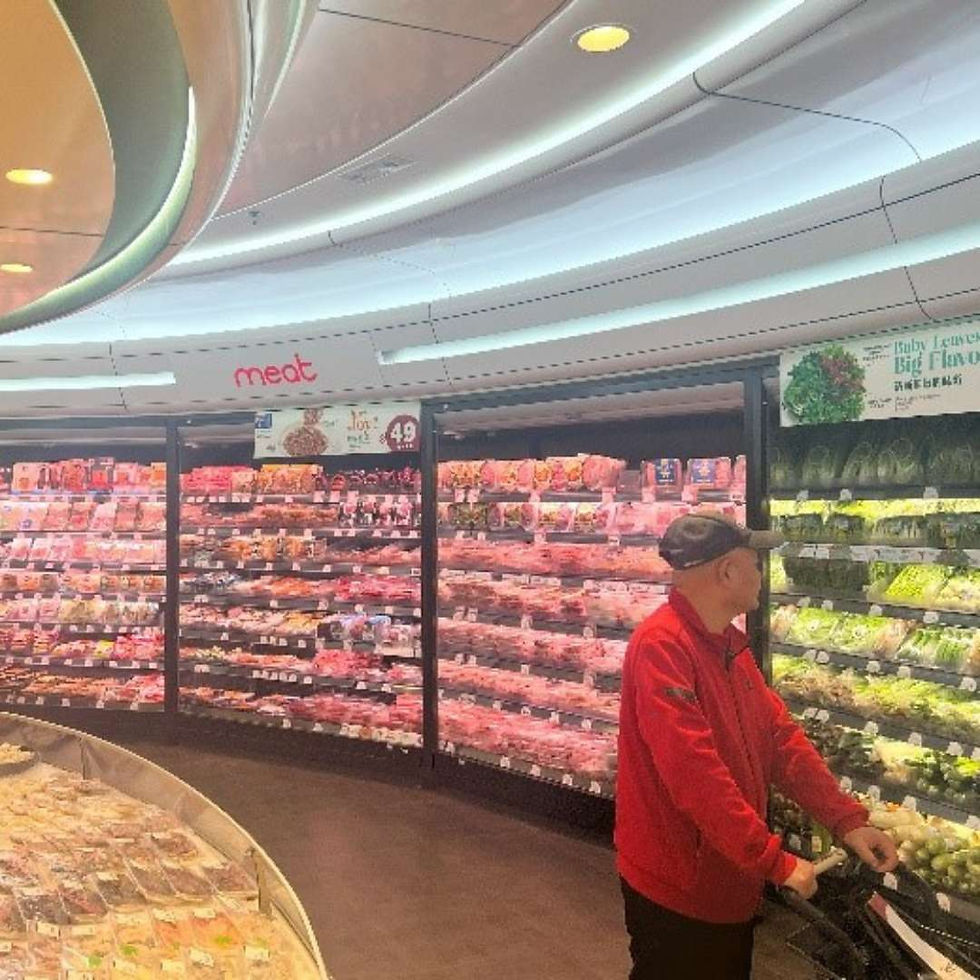Retail Group: Laying the Foundations for Smarter Refrigeration Asset Management
- Heather Dewing

- Apr 25, 2025
- 3 min read
Updated: Apr 29, 2025
Key Information
Client: An Asian retail group
Sector: Retail / FMCG
Timeline: Oct 2024 – Ongoing
Delivery Team: A leading digital transformation consultancy & an international software developer
Executive Summary
Consult HD supported a leading digital transformation consultancy in the successful implementation of an intelligent asset management platform for one of Hong Kong’s largest supermarket operators.
Our role was to provide targeted workforce and facilities management (FM) expertise during the pilot, which covered refrigeration assets across 20 supermarkets. The aim was to reduce the refrigerated asset cost of ownership, improve uptime and cut energy and refrigeration gas leakage. Thus, laying the groundwork for predictive maintenance and early intervention of fault on the refrigeration cases across the chain's over 300 Hong Kong locations.
We delivered on-site discovery and historic data analysis, helping to shape the platform configuration, optimise alarm triage and identify immediate opportunities for reduced work order volumes, energy consumption and compliance risk.
The project is now live and scalable, with a projected return on investment (ROI) within 12 to 18 months of full rollout.

The Client
The client is a leading Asian retailer operating in 13 countries and territories across health and beauty, convenience, food, restaurants and home furnishings. In Hong Kong, it operates over 350 supermarkets, serving more than 13 million customers per month.
The pilot programme was delivered by a global digital transformation consultancy, in collaboration with an international software provider specialising in asset and facilities management platforms.
The Project & Challenge: Refrigeration management
The supermarket group's objective was clear: reduce the total cost of ownership of refrigeration management and assets across its supermarket estate without compromising food safety or store operations.
The existing system had several gaps:
No remote visibility of refrigeration asset condition
High refrigerant gas leakage rates
Frequent unplanned maintenance and reactive work orders
Inconsistent food temperature monitoring and diagnostics
Risk to compliance due to a lack of automation and asset insights
The group needed a smarter, scalable way to monitor and manage refrigeration performance across stores. They wanted to reduce energy usage, refrigerant gas loss and manual interventions, while improving asset reliability and regulatory traceability.
To achieve this, the pilot solution consolidates real-time data from refrigeration controllers into a unified data platform. This gives the supermarket group central oversight of refrigeration performance across all of its sites. In turn, this enables more intelligent alarm triage to cut out nuisance alerts, reducing low-priority work orders and improving failure prediction so that maintenance can be carried out proactively and efficiently.

ConsultHD’s Approach
We worked alongside the digital transformation consultancy and an international software developer to provide independent FM and workforce consultancy support throughout the pilot, focusing on asset operations, data quality, and planning optimisation.
Our key activities included:
Discovery workshops and site visits
We travelled to Hong Kong to run on-site sessions with the supermarket group and the incumbent service provider. We reviewed current work order processes, engineer culture, training levels and site-specific challenges to identify gaps in how jobs were raised, planned and tracked.
Historic data analysis
We conducted a detailed review of four years of job data, analysing:
Number of work orders per store
Types of work orders raised
Work order volumes by “fault”
Our analysis revealed that insufficient preventative maintenance—such as routine compressor cleaning—was contributing to equipment failures and unnecessary costs.
We also found that job records lacked detail and consistency, making it difficult to triage faults and schedule repairs effectively. To support the shift toward predictive maintenance and earlier fault intervention, we recommended improving how engineers capture key job data, particularly around fault causes and remedies.
Alarm triage and system configuration
We supported the prioritisation and grouping of alarms within the new intelligent platform. This step was essential to cut through nuisance alerts, reduce low-value work orders, and enable meaningful, data-driven action from the system.
Strategic recommendation
As part of our wrap-up, we recommended a broader review of the supermarket group's end-to-end workforce management process, highlighting further areas for cost reduction and service improvement.
Expected Benefits & ROI
Based on pilot outcomes and projected full-scale rollout, the programme is expected to deliver:
15–20% reduction in work orders through better alarm triage
2–4% energy reduction across refrigeration assets
10–15% reduction in refrigerant gas leakage
Improved food safety compliance
Improved ESG reporting
Reduced call centre volumes
Greater asset uptime and reliability
The pilot is on track to deliver full payback within 12 to 18 months.









Comments